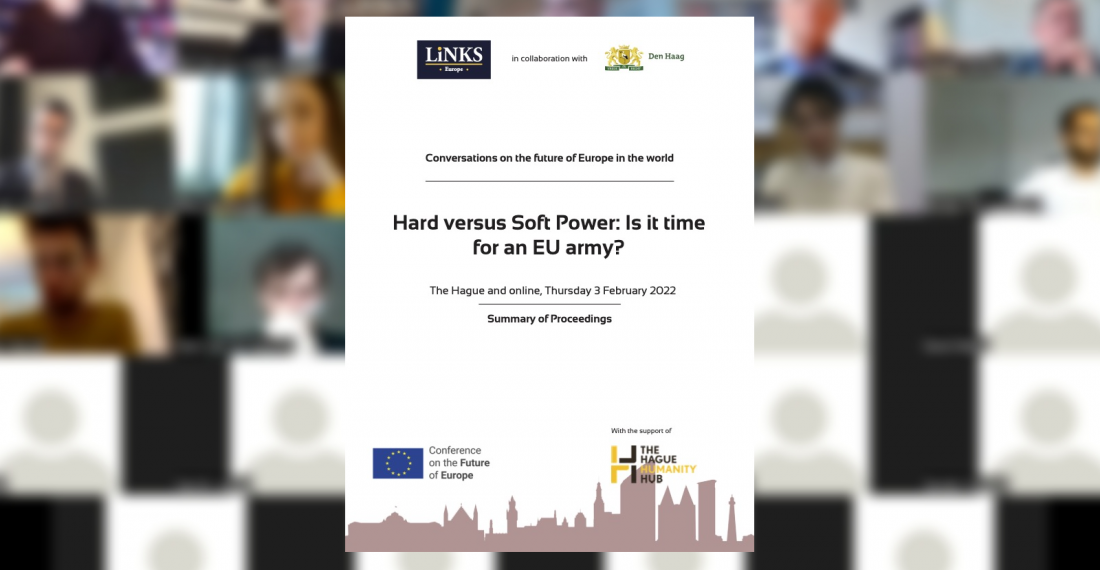LINKS Europe in collaboration with The City of The Hague, and with the support of The Hague Humanity Hub, hosted the fifth in a series of clusters of events titled ‘Conversations on the future of Europe in the world’ on Thursday, 3 February 2022. The event was hosted online from the LINKS Europe office in the The Hague, and around 50 participants joined. The series ‘Conversations on the future of Europe in the world’ contributes to the debate in the framework of the EU’s ‘Conference on the future of Europe’ process.
On behalf of LINKS Europe and the City of The Hague, the moderator of the event, William Murray, welcomed participants and introduced the topic: Hard versus Soft Power: Is it time for an EU army?
The conversation kicked off with a panel discussion with the participation of Professor Rob de Wijk, Founder, The Hague Centre for Strategic Studies (HCSS), The Hague; Dick Zandee, Head of the Security Unit and Senior Research Fellow, The Clingendael Institute, The Hague; and Dr Daniel S. Hamilton, Senior Non-Resident Fellow, The Brookings Institution, Washington DC, and former Deputy Assistant Secretary for European Affairs at the US Department of State. Other participants commented or asked questions during the course of the conversation.
Read the full summary here.






